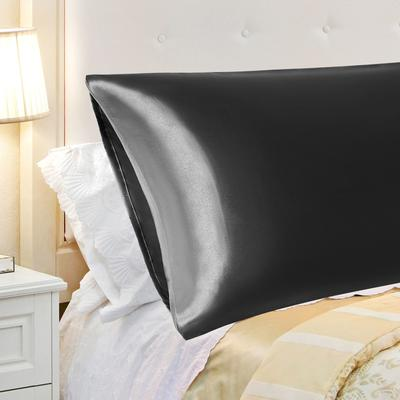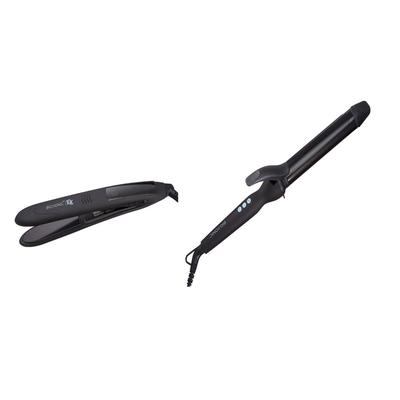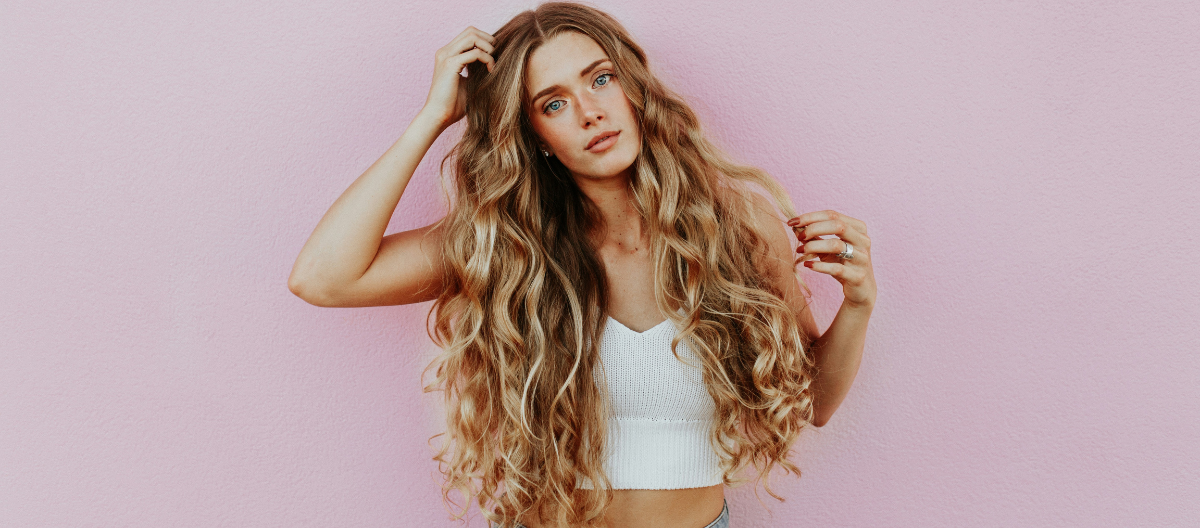Hey Diva dressing fans! When the items we love coincide with brands we work with, Diva dressing will use Paid Links in our articles. If you decide to click on these links and purchase the product, we get a small commission. Our Opinions Are Our Own, but we do add Paid Links as a way to offer these products at no added cost to our readers. Want to know more? Click Here to check out our Terms of Use anytime!
Thinning hair is a common concern among women, whether due to genetics, stress, hormonal changes, or aging. While it can be frustrating to deal with, there are numerous strategies, products, and treatments that can help you achieve fuller, thicker strands. Here we explore some of the best ways to combat thinning hair, from daily hair care routines to innovative treatments that promote hair growth and overall scalp health.
Understanding the Causes of Thinning Hair
Before diving into solutions, it’s important to understand the root causes of thinning hair. Common reasons include:
- Genetics: If your family has a history of thinning hair, it’s possible you may experience it too.
- Hormonal Changes: Pregnancy, menopause, and other hormonal fluctuations can lead to temporary or permanent thinning.
- Stress: High levels of stress can cause hair to fall out or grow slower.
- Diet: A lack of essential vitamins and nutrients, such as biotin, iron, or zinc, can lead to hair thinning.
- Aging: As we age, hair naturally becomes thinner and weaker.
- Medical Conditions: Issues like thyroid disorders, autoimmune diseases, or scalp infections can result in hair loss.
Identifying the underlying cause can help you choose the best course of action for treatment.
Gentle Hair Care Routine
The way you care for your hair can have a significant impact on its thickness and overall health. A gentle hair care routine is essential for those with thinning hair. Here are some tips:
- Avoid Overwashing: Shampooing your hair every day can strip the scalp of its natural oils, leading to dry and brittle hair. Aim to wash your hair two to three times a week with a mild, sulfate-free shampoo designed for thinning hair, such as Nioxin Cleanser Shampoo or Kérastase Densifique Bain Densité.
- Conditioning: Always use a conditioner after shampooing to keep hair hydrated and prevent breakage. Choose lightweight formulas that won’t weigh your hair down, like Briogeo Blossom & Bloom Volumizing Conditioner.
- Be Gentle When Brushing: Wet hair is more prone to breakage, so use a wide-tooth comb to detangle your hair instead of brushing aggressively. A brush with soft bristles, such as the Tangle Teezer, can also help minimize hair damage.
- Minimize Heat Styling: Excessive use of hot tools like curling irons, straighteners, and blow dryers can weaken your hair over time. Opt for air-drying or use heat protectant sprays when styling to reduce damage.
Volumizing Hair Products
Investing in quality volumizing products can create the illusion of thicker, fuller hair. These products add body and lift without weighing the hair down:
- Thickening Sprays: A thickening spray can provide immediate volume and texture. Oribe Maximista Thickening Spray is a great option that helps create fullness without making the hair feel sticky or heavy.
- Mousse: A lightweight mousse can add volume while keeping the hair soft and manageable. Bumble and Bumble Thickening Full Form Soft Mousse is a favorite for creating lift and texture.
- Dry Shampoo: Dry shampoo is perfect for adding volume and absorbing excess oil between washes. Batiste Volumizing Dry Shampoo is affordable and effective, giving hair an instant boost.
Dietary Changes for Healthier Hair
Your diet plays a crucial role in hair health. Ensuring you’re getting the right nutrients can improve hair growth and thickness:
- Protein: Hair is primarily made of keratin, a protein, so consuming adequate amounts of protein is essential for healthy hair. Incorporate lean meats, fish, eggs, and plant-based proteins like lentils and beans into your diet.
- Biotin: Biotin, or vitamin B7, is known for promoting hair growth. Foods rich in biotin include eggs, almonds, sweet potatoes, and spinach. Biotin supplements like Nature’s Bounty Biotin Softgels can also be beneficial for supporting healthy hair.
- Omega-3 Fatty Acids: Omega-3s help nourish hair follicles and prevent inflammation, which can contribute to hair loss. Fish such as salmon, mackerel, and flaxseeds are great sources of these essential fatty acids.
- Iron: Iron deficiency is a common cause of hair thinning. Adding iron-rich foods like red meat, spinach, and lentils to your diet can promote hair growth. If you suspect a deficiency, speak to your doctor about taking an iron supplement.
Scalp Care for Thicker Hair
Healthy hair starts with a healthy scalp. A well-maintained scalp can promote hair growth and prevent thinning. Here are some scalp care tips:
- Scalp Massages: Massaging the scalp increases blood circulation, encouraging hair growth. Use your fingertips to gently massage your scalp for a few minutes every day. You can also incorporate a nourishing scalp treatment, such as The Ordinary Multi-Peptide Serum for Hair Density, to boost results.
- Exfoliate Your Scalp: Just like your skin, your scalp can accumulate dead skin cells, product buildup, and excess oil, which can block hair follicles. Use a scalp scrub or exfoliating shampoo, like Briogeo Scalp Revival Charcoal + Coconut Oil Micro-Exfoliating Shampoo, to cleanse and refresh your scalp.
- Keep Your Scalp Moisturized: A dry, flaky scalp can lead to hair breakage and slower growth. Regularly applying a lightweight scalp oil, such as Verb Ghost Scalp Oil, can help maintain a balanced, hydrated scalp.
Hair Growth Treatments
There are several treatments designed to specifically target hair thinning and promote hair growth:
- Minoxidil: Available over-the-counter, minoxidil is one of the most well-known treatments for hair loss. Products like Rogaine for women contain this FDA-approved ingredient and can help stimulate hair growth when used consistently.
- Laser Therapy: Low-level laser therapy (LLLT) is a non-invasive treatment that stimulates hair follicles, encouraging hair growth. Devices like the iRestore Laser Hair Growth System have gained popularity for their ability to combat thinning hair from the comfort of your own home.
- Platelet-Rich Plasma (PRP) Therapy: PRP therapy involves injecting your own plasma into the scalp to stimulate hair growth. This procedure is typically done by a dermatologist or hair specialist and has shown promising results in promoting thicker, fuller hair.
Avoid Stress-Inducing Hair Loss
Stress is a major contributor to hair thinning. Reducing stress can prevent further hair loss and improve your overall health. Here are a few ways to manage stress:
- Mindfulness and Meditation: Practices like meditation, yoga, and breathing exercises can help reduce stress and prevent stress-related hair thinning.
- Exercise: Physical activity not only reduces stress but also increases blood flow to the scalp, encouraging healthy hair growth.
- Adequate Sleep: Ensure you’re getting enough rest each night, as sleep is essential for cellular repair and hair regeneration.
Hair Extensions and Thickening Techniques
If you’re looking for an instant way to achieve fuller hair, hair extensions or thickening fibers can provide immediate results:
- Clip-In Extensions: Clip-in extensions are a temporary and easy way to add volume to thinning hair without damage. Brands like Luxy Hair offer high-quality, natural-looking clip-ins that can be styled just like your own hair.
- Thickening Fibers: Hair thickening fibers, like Toppik Hair Building Fibers, can be sprinkled onto the scalp to instantly cover thinning areas. These fibers cling to your existing hair, creating the appearance of thicker strands.
Here are some products that can help
Shampoo Brush Scalp Massager $13.19
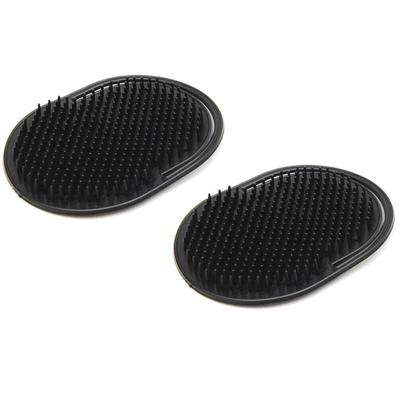
10Pcs Hawaiian Hibiscus Flowers Foam Artificial Flowers Hair Clip $14.79
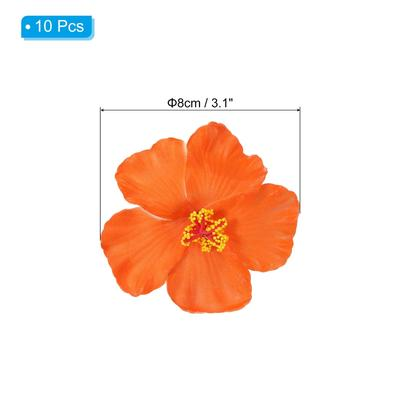
Microfiber Hair Wrap and Towel $16.14
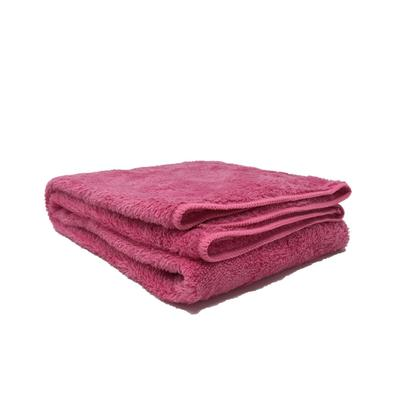
Body Soft Silky Satin Smooth Beauty for Hair Face Pillowcases $16.99
